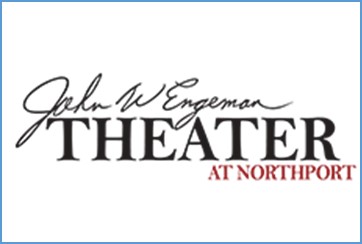Reverend Returns To Charleston
/“The air seems clean. The place seems clean. But yet, there’s so many hearts that remain unclean.”
That was the impression Rev. Luonne Rouse, pastor of the United Methodist Church of Huntington/Cold Spring Harbor, recalled having when he arrived in Charleston, S.C. on Monday, where he has spent much of the past week meeting and strategizing with religious leaders a week after nine people were shot and killed at Mother Emanuel AME Church. Authorities say a white supremacist sat in on a Bible study at the historic African-American church for nearly an hour; then, when the service concluded, he opened fire.
Rouse made a point of driving in after landing in Charlotte, N.C. to get the feeling on the ground, rather than flying above it.
He loves the state – he and his wife still have a home there. His grandfather was a minister at a church in Lumberton, N.C., a sister church to Emanuel AME. But South Carolina’s complicated history with race relations remains, and Rouse said he’s hopeful that change will be coming soon to the first state to secede from the Union in the Civil War.
“Our great, gigantic huge issue is: What do we do about hate in the world?” he said in an interview Monday. “We arrived in South Carolina early this morning [Monday]… we did get here early this morning. We were in prayer and hope we’ll meet with some ministers tomorrow and continue to pray and discern – where do we go now?
During his ministerial tenure, Rouse, born in Greenville, S.C., has faced issues of integration head-on.
He became a preacher in 1986 and was the first African-American since Reconstruction appointed to a predominately white congregation in South Carolina United Methodism when he became an associate minister at Buncombe Street United Methodist Church in downtown Greenville.
Rouse founded the Joseph B. Bethea United Methodist Church in Horry County, S.C. in 1991, while he was appointed to develop racially inclusive ministries in the Conway/Myrtle Beach new parish development. He returned to Greenville to serve as senior minister of the predominantly white Disciples United Methodist Church, a role he maintained until late 2003 when he moved to Harlem. He later began his ministry in Huntington.
That tradition reflects Rouse’s call to “get all religious leaders around the table” and take steps toward solving the crisis of hate, “not to sit back on the sidelines and wonder what’s next.”
“It’s time to bring positivity in human relations and stop the negativity that’s going on,” he said
On the matter of whether the Confederate “stars and bars” flag should fly at South Carolina’s state capitol, as it has in its current form since 2000, Rouse said that Governor Nikki Haley made the right call by demanding its removal.
For 38 years prior, a larger flag flew atop the statehouse; a compromise in 2000 relocated a smaller flag on the state house lawn. Per that compromise, the smaller Confederate flag can only be removed by a two-thirds majority vote of state lawmakers.
But, Rouse stressed, that’s only part of the answer.
“Arguments can be made both sides… the bottom line, as I reflect on it – that’s the political end,” he said of the flag debate. “I’m still grieving the loss of those who were murdered.”
Rouse, who works closely with Not In Our Town, a project of the Oakland, Calif.-based The Working Group, said he is working to finalize “some concrete things that will come of this to make a difference.” That project launched in 1995 with a PBS special telling the story of how citizens of Billings, Mont. came together to respond to hate crimes in their town.
Rouse is calling for all people of faith, in their own religious traditions, to pray every Wednesday for the next nine weeks – starting July 1 – as part of a nine-week vigil – one week for each victim in Charleston.
He’s hoping the vigil will honor the lives of those who died and serve as a catalyst for change.
“Something has to happen so that we have hope of killing and destroying this hate,” he said.





